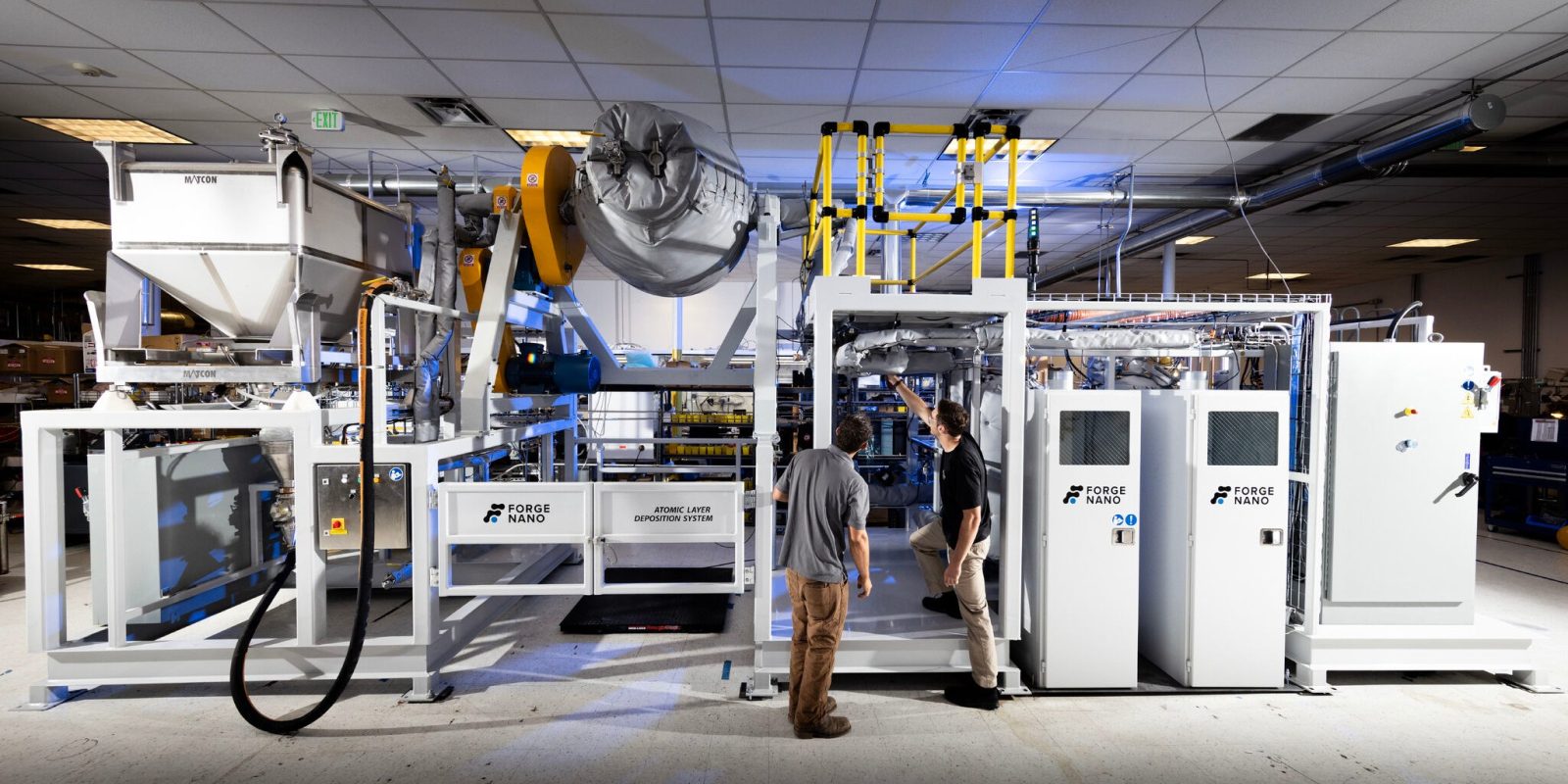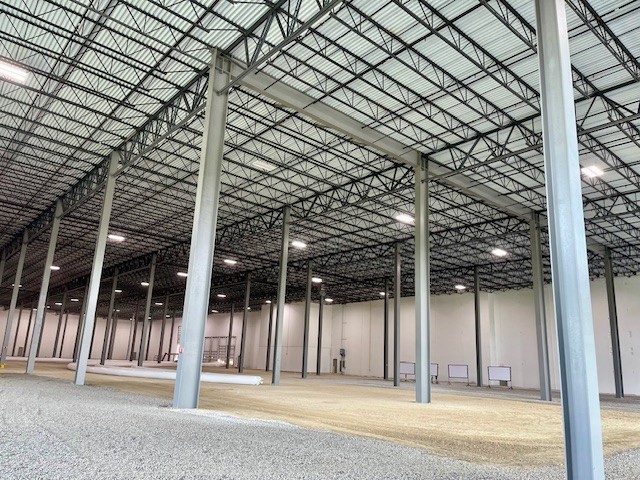
GM Ventures has invested $10 million in supplies science firm Forge Nano, which makes Atomic Armor, an progressive EV battery expertise.
GM and Forge Nano
Capital funding into Forge Nano now exceeds $100 million; GM joins Volkswagen, LG, Hanwha, and Mitsui Kinzoku as shareholders.
GM and Forge Nano have additionally signed a strategic partnership settlement to make use of Forge Nano’s proprietary Atomic Layer Deposition (ALD) expertise, Atomic Armor, to develop thin-film coatings to boost GM’s cathode lively supplies. Forge Nano will construct prototype lithium-ion battery cells at its Colorado headquarters to enhance GM’s EV battery efficiency and lifespan.
Atomic Armor is a floor coating that, when utilized to an EV battery, prevents corrosion, strengthens properties, and improves efficiency. It leads to a 20% improve in vary and provides the EV battery the flexibility to quick cost in 10 minutes.
Forge Nano says it plans to make use of the cash to proceed to broaden its battery materials coating enterprise, which incorporates in-house lively materials coating providers, exterior gear gross sales, and manufacturing of Atomic Armor-powered battery cells. It can additionally broaden its footprint in semiconductors.

Forge Battery
Forge Battery is Forge Nano’s manufacturing enterprise, which I visited on the finish of September on a press journey organized by the Financial Growth Partnership of North Carolina to the state’s Battery Belt.
Forge Battery is at the moment becoming out a 277,000-square-foot area (pictured above) that it’s leased in Morrisville, North Carolina, the place it should manufacture ALD-enabled, high-performance (307 Wh/kg) NMC/Si-G 21700 Li-ion cells. (Forge Battery additionally has a newly constructed gigafactory in Raleigh, the place it’s begun to provide and ship 300 Wh/kg Atomic Armor-powered lithium-ion prototype cells.)
Forge Battery informed us its goal market consists of heavy trucking, offroad autos, bikes, and protection.
The Morrisville web site can have a 1 GWh per 12 months manufacturing functionality underway in 2026 and can develop to three GWh per 12 months by 2029 as soon as it will get the facility it wants from utility Duke Vitality. Forge Battery’s provide chain will initially be 90% US-sourced, with the objective of a 100% US provide chain by undertaking completion. (The ten% isn’t but made within the US; that’s sourced from South Korea.)
The US Division of Vitality not too long ago awarded Forge Battery $100 million as a part of the Bipartisan Infrastructure Legislation, and it’ll use that cash to broaden its manufacturing capability to three GWh/12 months. Once we visited the huge area, which will likely be made even bigger with the brand new funding, preparations have been underway for a press convention the following day the place Governor Roy Cooper (D-NC) and US Division of Vitality Secretary Jennifer Granholm have been going to announce the funding formally.
That occasion needed to be canceled as a result of Hurricane Helene’s impending arrival. All of us left early, and on the time, none of us knew how devastating the harm can be to the western a part of the state.
Learn extra: Forge Battery says its 21700 EV batteries quick cost in 10 minutes
Electrek’s Take
When individuals ask what the Biden administration has been as much as over the previous couple of years, Forge Battery is a superb instance of the mind-blowing home clear power and EV progress the federal authorities (and the state of North Carolina) is supporting. It’s mind-boggling to assume that each one of this has occurred in just some brief years. Good coverage will get real-world outcomes, and it was nice to see it in particular person.
Forge Nano and Forge Battery are creating better-performing EV batteries. These ought to encourage extra individuals to undertake EVs. They’re additionally creating direct and oblique jobs in North Carolina and elsewhere. And most significantly, the product they construct encourages individuals to cease burning fossil fuels that heat the earth with emissions and create ever extra intense hurricanes like Helene that devastate communities and lives.
If you’re able to assist, the state’s North Carolina Catastrophe Reduction Fund is accepting donations to help the communities most impacted.

FTC: We use earnings incomes auto affiliate hyperlinks. Extra.



